As I push open the workshop door, it’s as if I’ve entered an Aladdin’s cave. Sewing machines stand in rows; textile banners are draped over one another; workstations overflow with embroidered lace, and painted artwork is strung high above it all. This place is a hub of creativity but, as I’m about to discover, it’s much, much more.
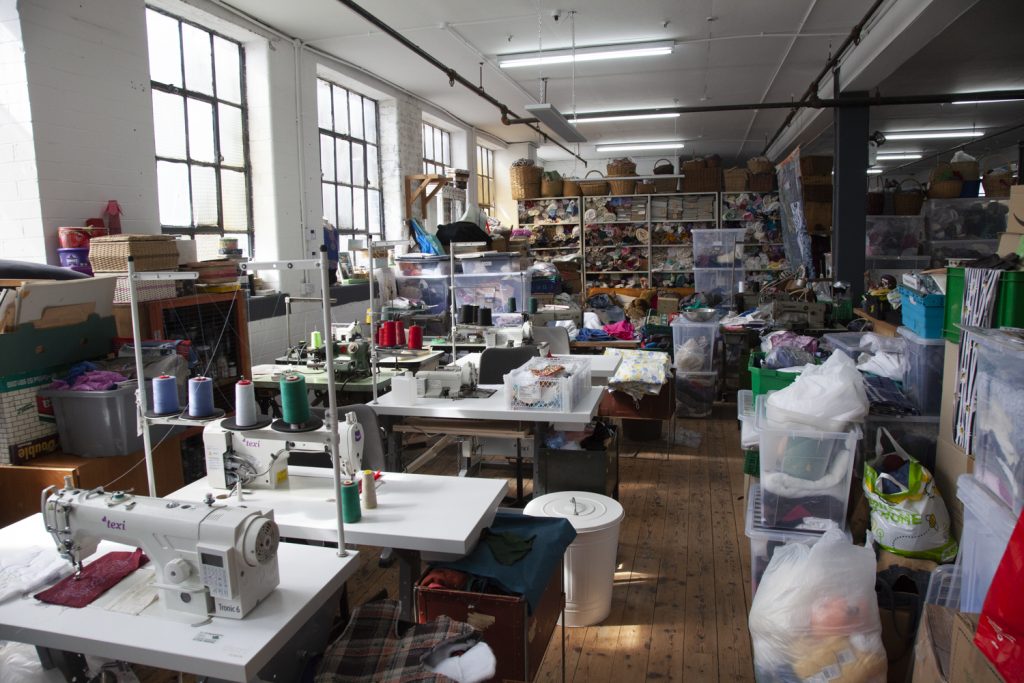
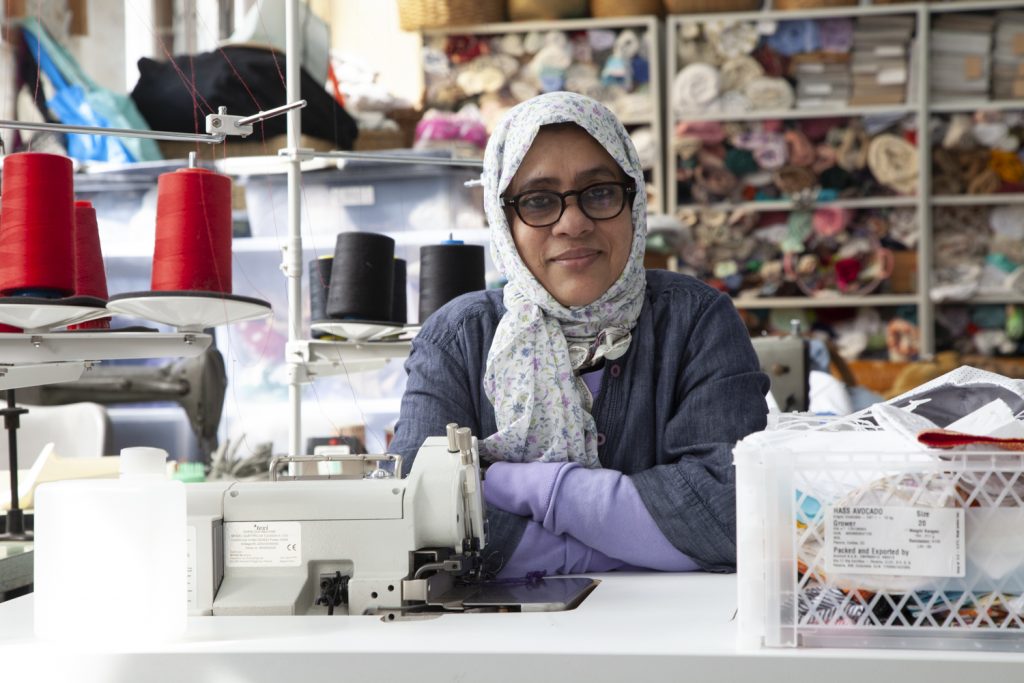
So, little by little, they can make a change.”
Creative Design and Manufacture (CDM) was set up eight years ago by textile designer Taslima Ahmad who has a passion for the traditional hand processes that she feared were being lost. “I was studying at Manchester Metropolitan University at the time and they were getting rid of lots of their hand processes lab equipment as everything was going digital. With help, I acquired them all and my husband and I set up a design and training centre in a disused mill unit.”
Three years later, they moved to their current premises on Grosvenor Street in Ardwick. “Keeping these skills alive is very important,” she says. “When you do something with your hands it retains in your memory. You get lost in the process which is great for your wellbeing.”
It’s this restorative nature of hands-on creativity that is at the core of what CDM does. In pre-Covid times the workshop would be full of woman and girls, all designing, making, creating.
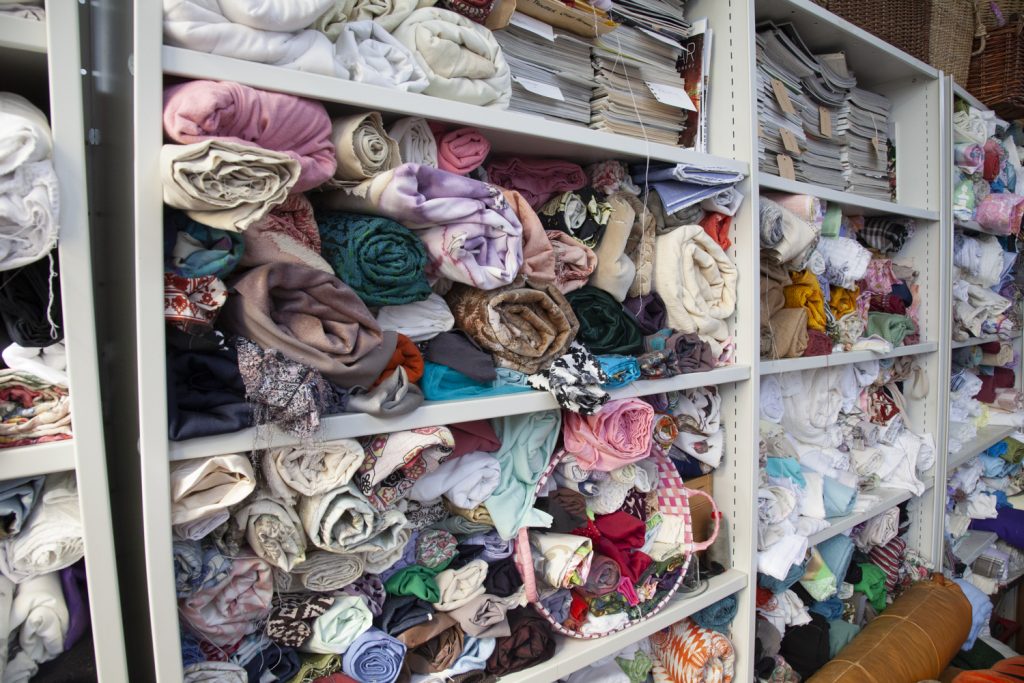
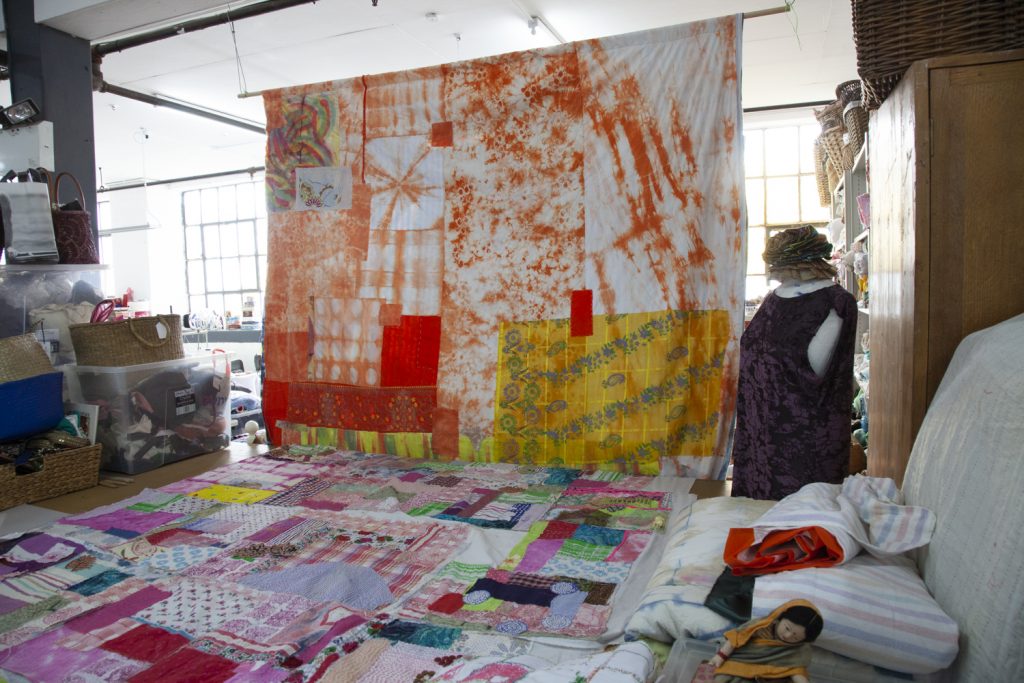
“The women who come to us are from diverse backgrounds, many of them suffering from abuse or trauma,” says Taslima. “Local schools even send us their most challenging young girls who may be struggling at school. I believe if you give people the right skills, tools and nurture them, they will flourish.” Already 15 girls who’ve worked with Taslima have gone on to university.
Using textiles as a starting point, Taslima supports her users in so many ways. “I teach them to read and write, I help them sell their artwork and I direct them to local jobs. We encourage healthy eating – many have lost weight since coming here – and we only serve organic food, no fizzy drinks.”
Taslima’s desire to help others is deep-rooted. “As a little girl, I remember wanting to give what we had to others. It comes naturally to me.”
Where, I ask, does her creative inspiration come from? “None of my family were creative,” she says, as she describes her London childhood, “I was the odd one out. Although my father was very supportive, it was my next door neighbour who taught me how to knit and crochet and instilled a passion for hand-making.
“Yes, I’m from an affluent family, but I’ve suffered trauma too and I’m challenged daily by autism and dyslexia. I work differently to overcome those barriers.”
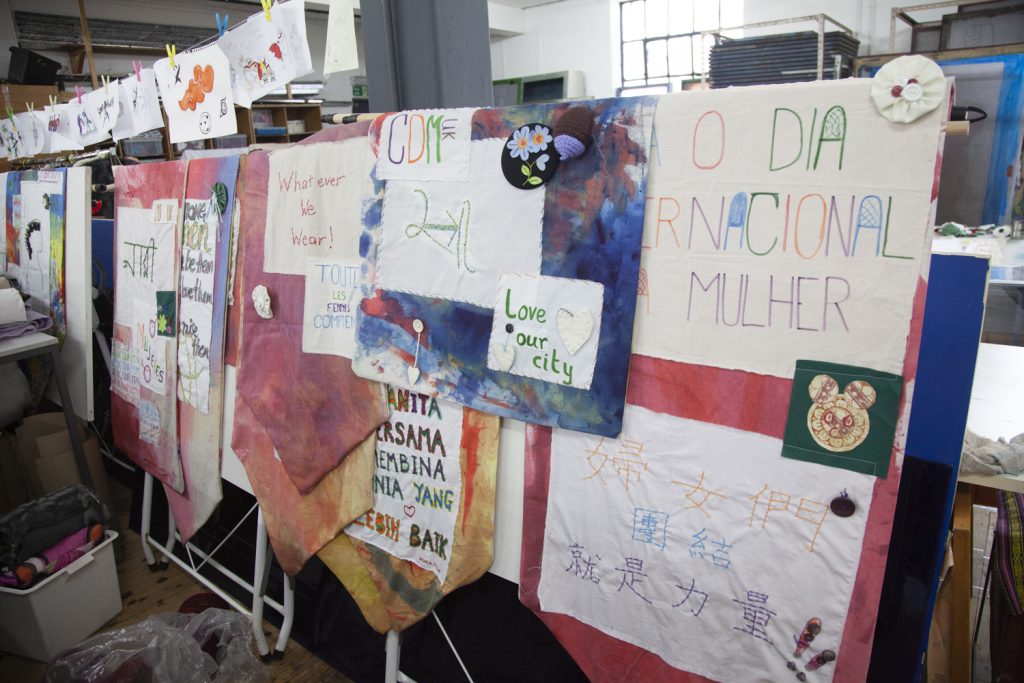
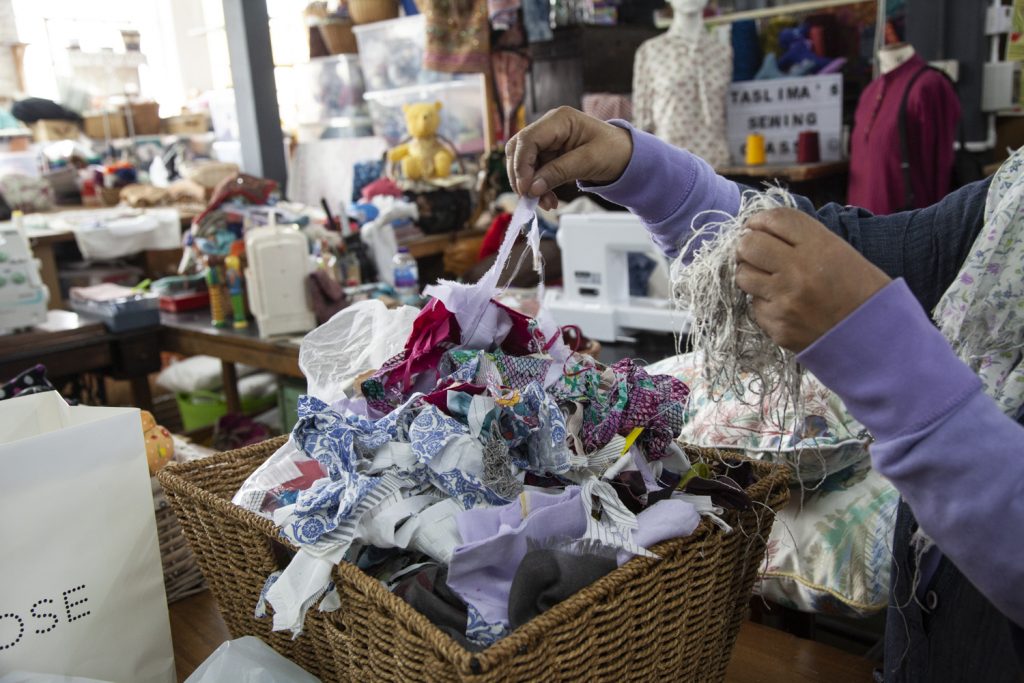
During lockdown, Taslima and her band of textile artists and designers have been prolific. Sewing machines have been delivered to the homes of her regular attendees and, with Taslima demonstrating over Zoom or in people’s front gardens, they have produced hundreds of ‘scrub bags’ for the local hospitals as well as thousands of colourful face masks for NHS staff and their own communities. Their efforts have not gone unnoticed and Taslima shows me a recent award from the National Lottery.
“We worked like machines to help the NHS,” she says. “All of our women got involved and little by little, their husbands and children got involved too. Because we were doing Zoom demonstrations, we reached new people who wouldn’t, for whatever reason, come to an in-person session here.”
As lockdown eases, Taslima is determined to keep up with online classes to be as inclusive as possible. “I’ll even go to people’s homes to demonstrate techniques if that’s needed. We shouldn’t be afraid of new ways of learning, of a new way of life. We should embrace it.”
